While you won’t bat an eye at a drinks stall whipping up teh-O in a kopitiam, it’s not every day you see millennials whisking bowls of frothy matcha behind a minimalist zen counter framed with shoji-style windows within the same humid space.
Former fintech firm colleagues Daniel Tan (pictured), 38, and Junjie Tan (who declined to be photographed), 35, left their cushy corporate jobs to open their stall Green Green Matcha at a coffee shop in Telok Ayer in early August.
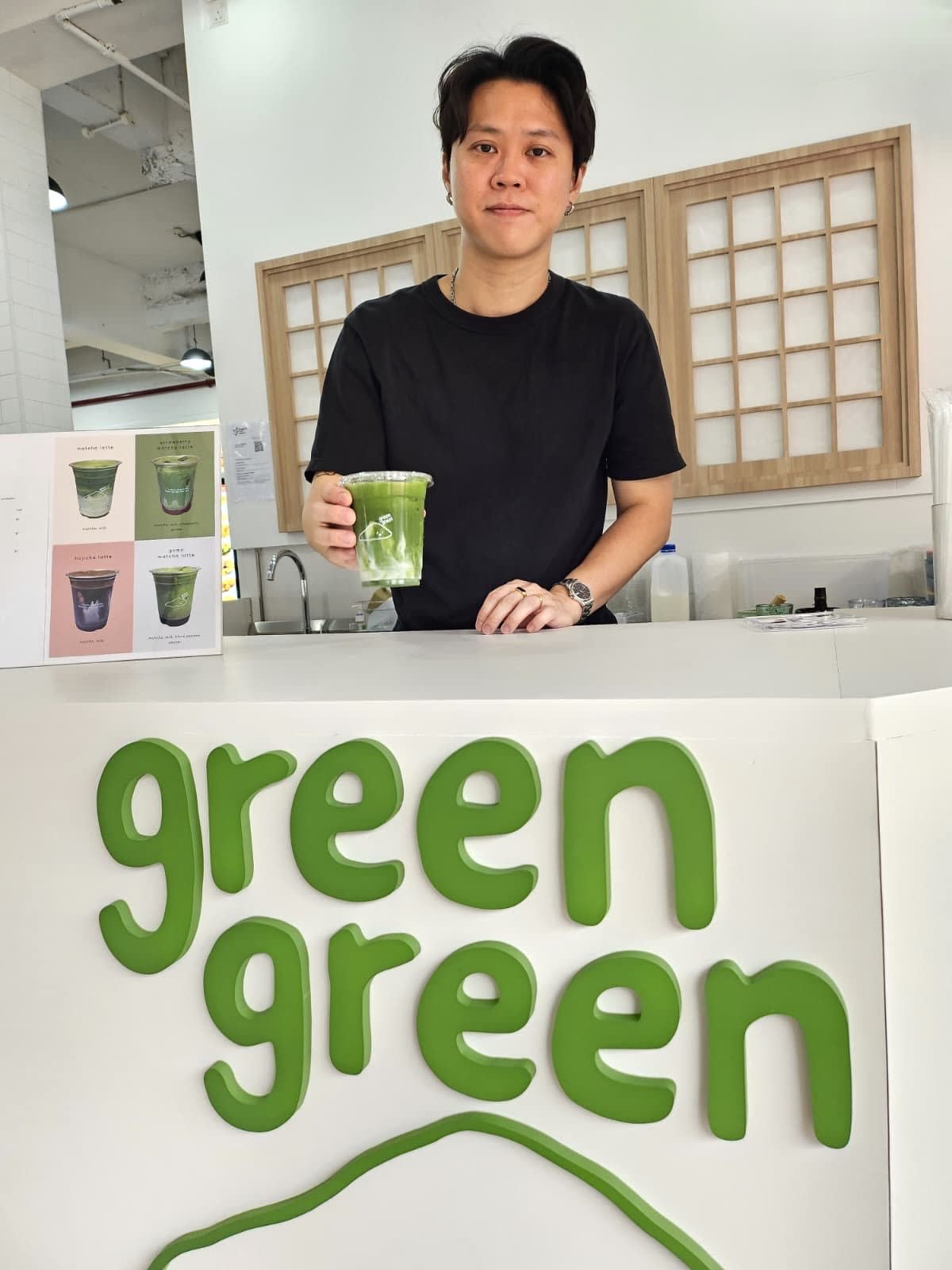
Not retrenched, but offered same salary for more work
Daniel was head of marketing while Junjie headed operations in the fintech firm. However, the company began downsizing and restructuring exercises earlier this year. While both men weren’t retrenched, Daniel tells 8days.sg that they were offered the same salary but with additional responsibilities. “We were offered revised terms which [we could not accept]. So we felt that it was the right time for us to leave to pursue our own beverage brand,” Daniel says. The pals had been talking about owning their own F&B biz for a while now, anyway. Both have spouses working full-time, though they prefer to keep family details private.
Both Daniel and Junjie run the stall themselves, hand-whisking every cup of matcha – but they’re looking to hire extra hands. “Our arms get sore and tired,” Daniel admits. “But we try our best to keep up with orders and ensure that wait times are kept to a minimum.”
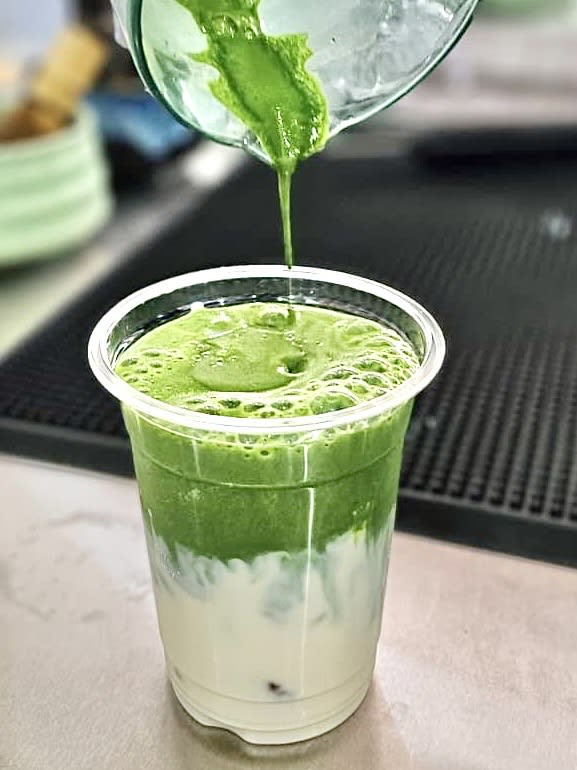
“If not now, then when?”
“We’ve always talked about our dream to build a beverage brand and took the leap,” shares Daniel. “It was more ‘if not now, then when?’ for us.”
They toyed with a few ideas like a tea or coffee bar but eventually settled on Green Green Matcha, jumping on the matcha craze bandwagon.
Junjie is no stranger to the F&B industry. Nearly a decade ago, he ran a fruit juice stall at International Plaza, which is no longer in operation as it wasn’t financially sustainable at the time.
Why jump back into F&B in the current tough climate? “The demand for quality matcha was one of the reasons we decided to start a matcha specialty stall instead of one that sold both coffee and tea,” he says. “We felt that if we focused our offerings to just matcha and did it right, it would be well-received.”
“Running that fruit juice stall taught me the fundamentals of business — from sourcing and supply-chain management to maintaining healthy profit margins, hygiene, and SOPs,” Junjie says. “Those lessons help us keep things predictable today.”
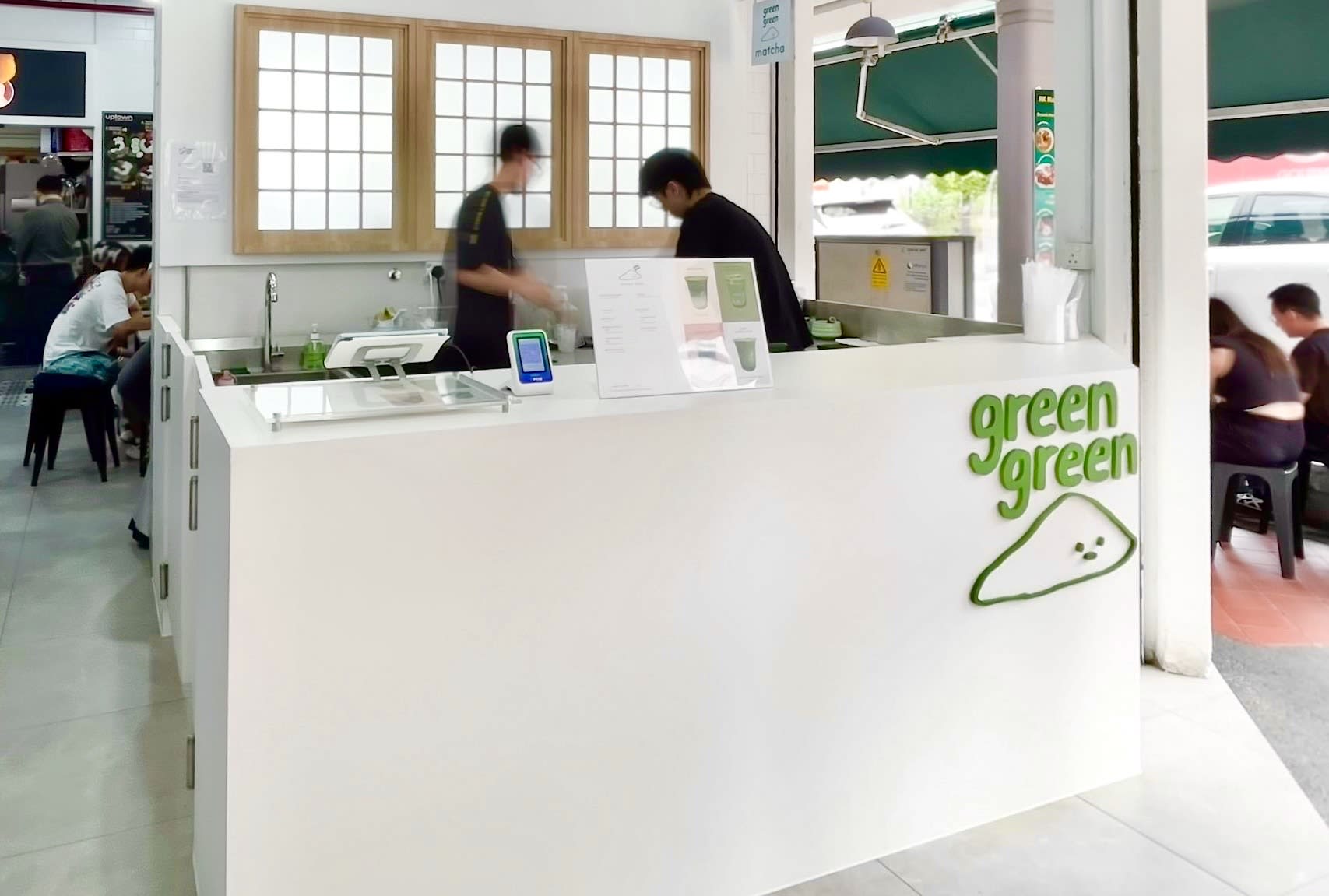
Why matcha in a coffee shop?
Daniel explains: “Rental rates in malls were too expensive, which would have forced us to raise our prices.”
“We bonded over our shared love for matcha and a common frustration: the lack of consistency in quality and pricing of matcha lattes in Singapore,” Daniel says. “A cup usually costs anywhere from $6 to $12, yet the taste and the amount of matcha used varied wildly from place to place. We wanted something better, a matcha that is creamy, umami, and nutty, but at a price that is comparable to a cup of hand-crafted coffee.”
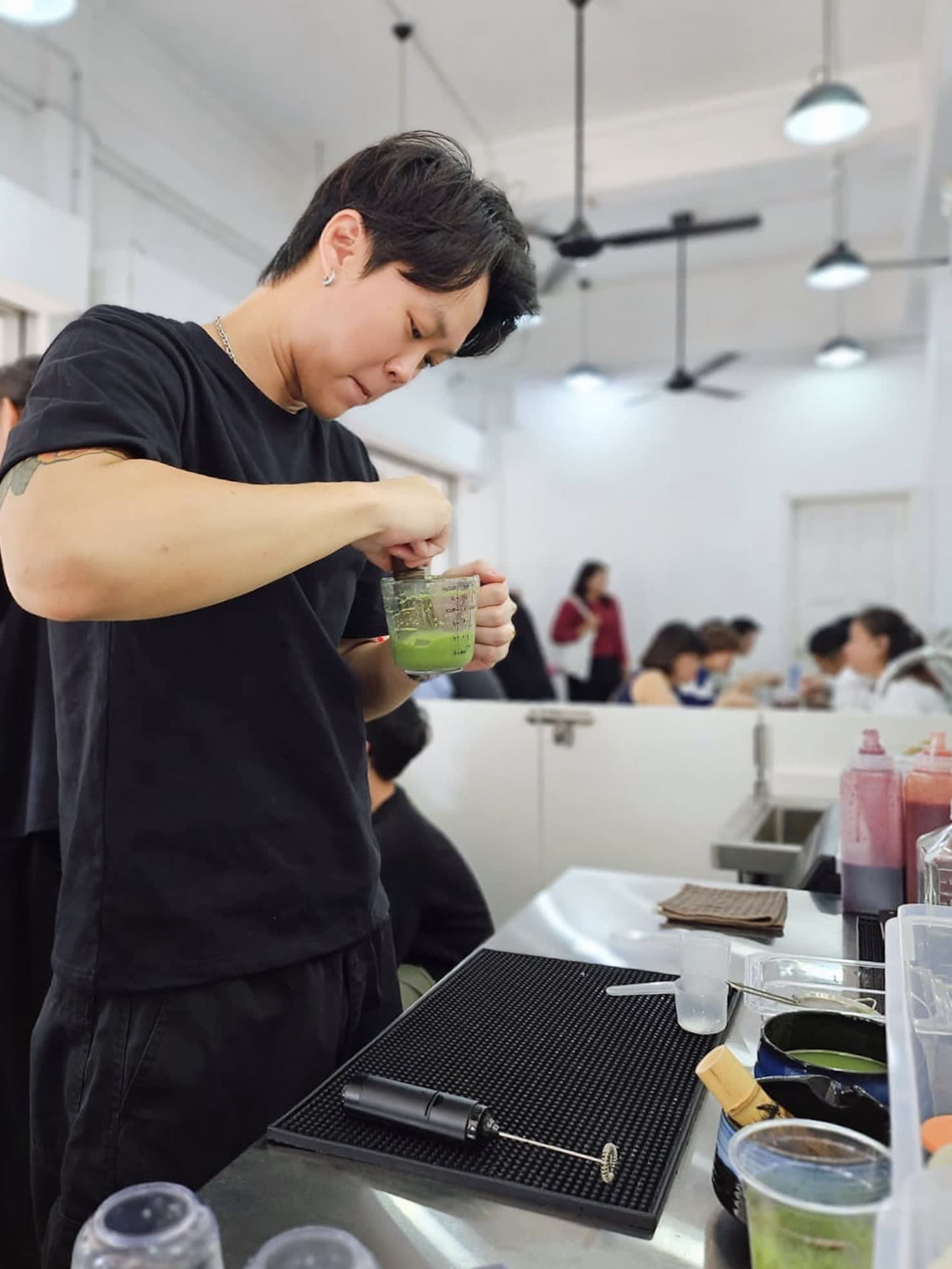
Not drawing a salary yet
A home-based setup wasn’t feasible either. “Our homes just aren’t suited for hosting customers, or for fitting a proper prep table and a large enough fridge,” he adds.
The simply named Telok Ayer Coffee Shop is your typical non air-conditioned kopitiam, and it’s located among offices in the CBD area. It’s proven to be the sweet spot so far for the guys — affordable rent, steady foot traffic and a lunch crowd, even with operating hours limited to 9.30am to 3pm on weekdays.
“The coffee shop wraps up around 5pm and we see the crowd taper after 2.30pm,” Daniel explains. “Closing at 3pm lets us prepare for the next day and maintain speed and quality during lunchtime, when it’s the busiest.”
While they declined to reveal their investment or rental fees, Daniel notes it’s “certainly less than a typical café setup”. Coffee shop rent, he adds, “is definitely higher than a few years ago, but we managed to secure a good offer.”
The two aren’t drawing a salary yet, as the business has not yet broken even. “In the short term, our focus is consistency and shorter wait times. If demand holds, we’ll consider a second stall,” Daniel shares.
Do they miss their corporate jobs? Daniel replies: “Having our own business brings a different sense of achievement where every decision we make directly impacts the business.”
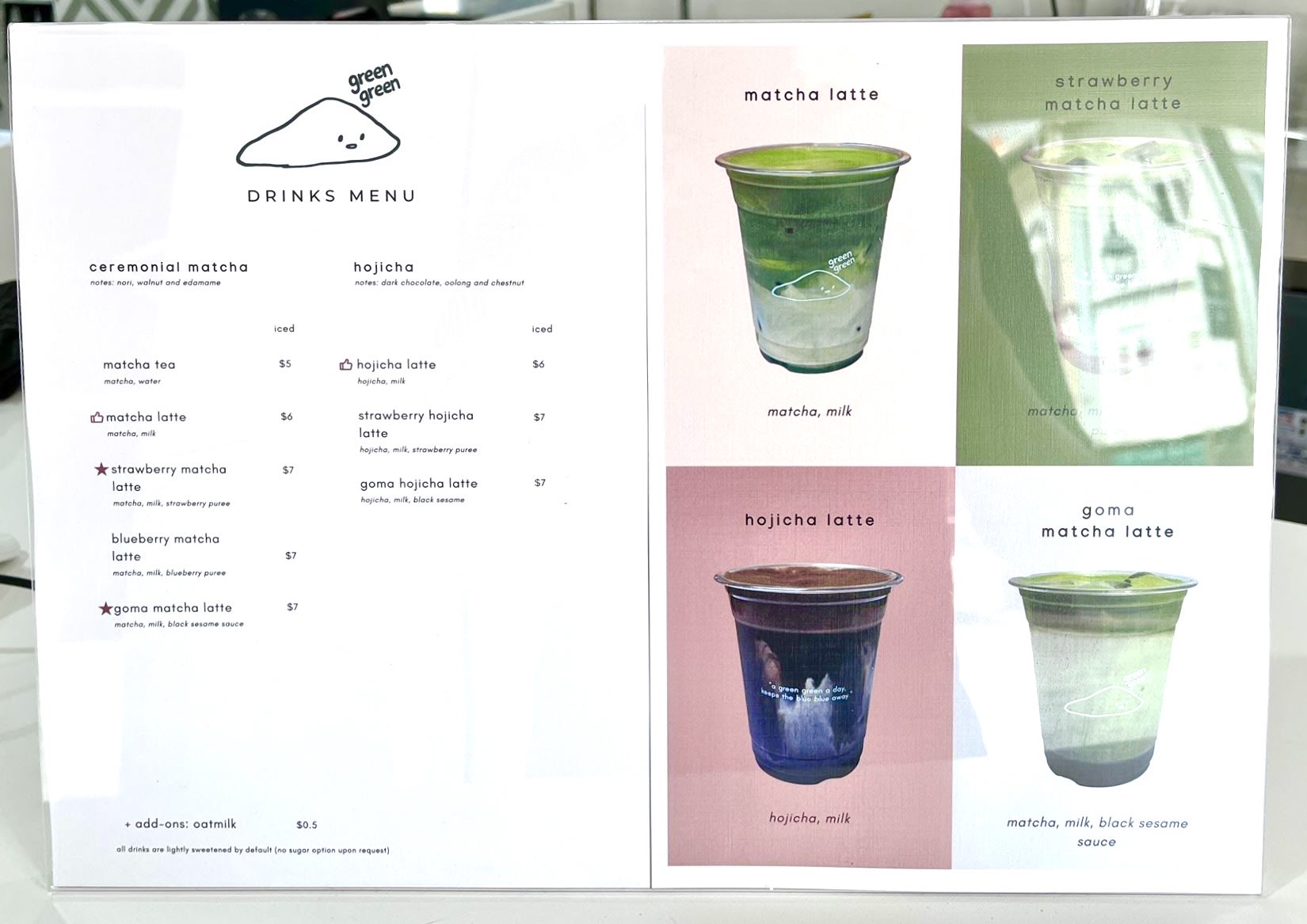
Prices start from $5
At Green Green Matcha, you can get a cup of iced matcha tea from $5, while a strawberry matcha latte is $7 — all made with ceremonial grade Uji Matcha from Kyoto, Japan. “Every cup is hand-whisked only when the customer orders, to bring out the matcha’s natural nuttiness and umami,” Daniel says. They first cold-whisk the matcha in a beaker with an electric whisk, then double-whisk by hand using a chasen (traditional Japanese bamboo whisk), for a smooth texture.
The menu is deliberately kept lean, featuring five matcha and three hojicha drinks. They use Meiji fresh milk but also offer Oatside’s oat milk option.
Seasonal twists will be introduced once operations are fully streamlined. The pair might consider a second stall if the demand holds.
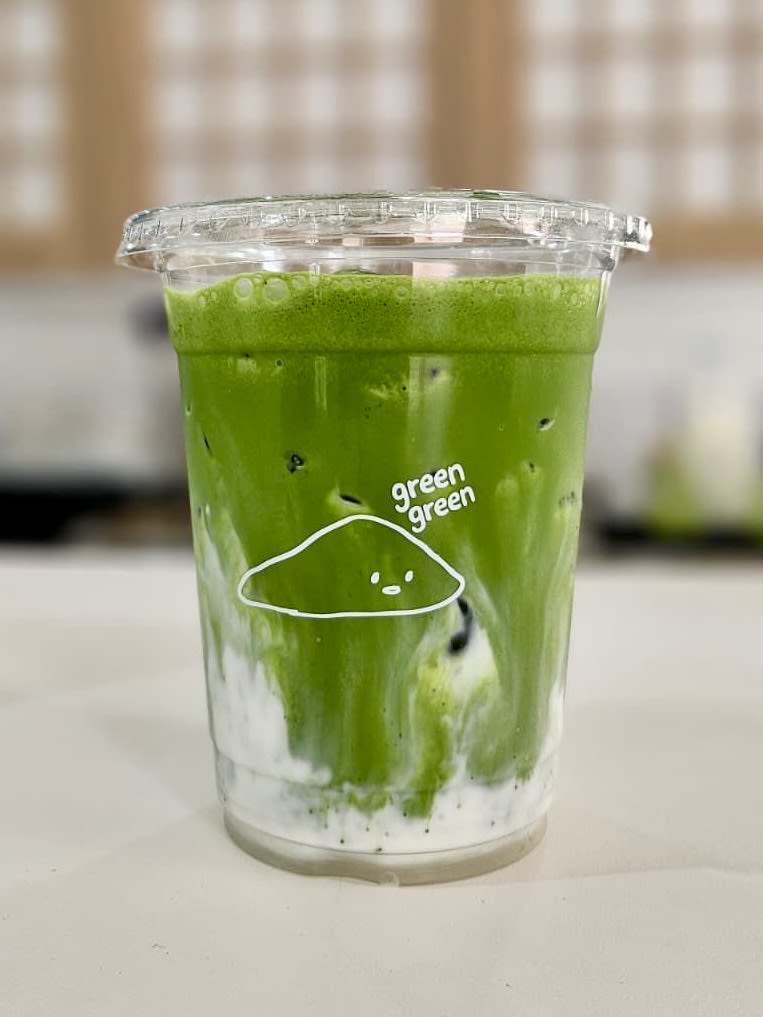
Matcha Latte, $6
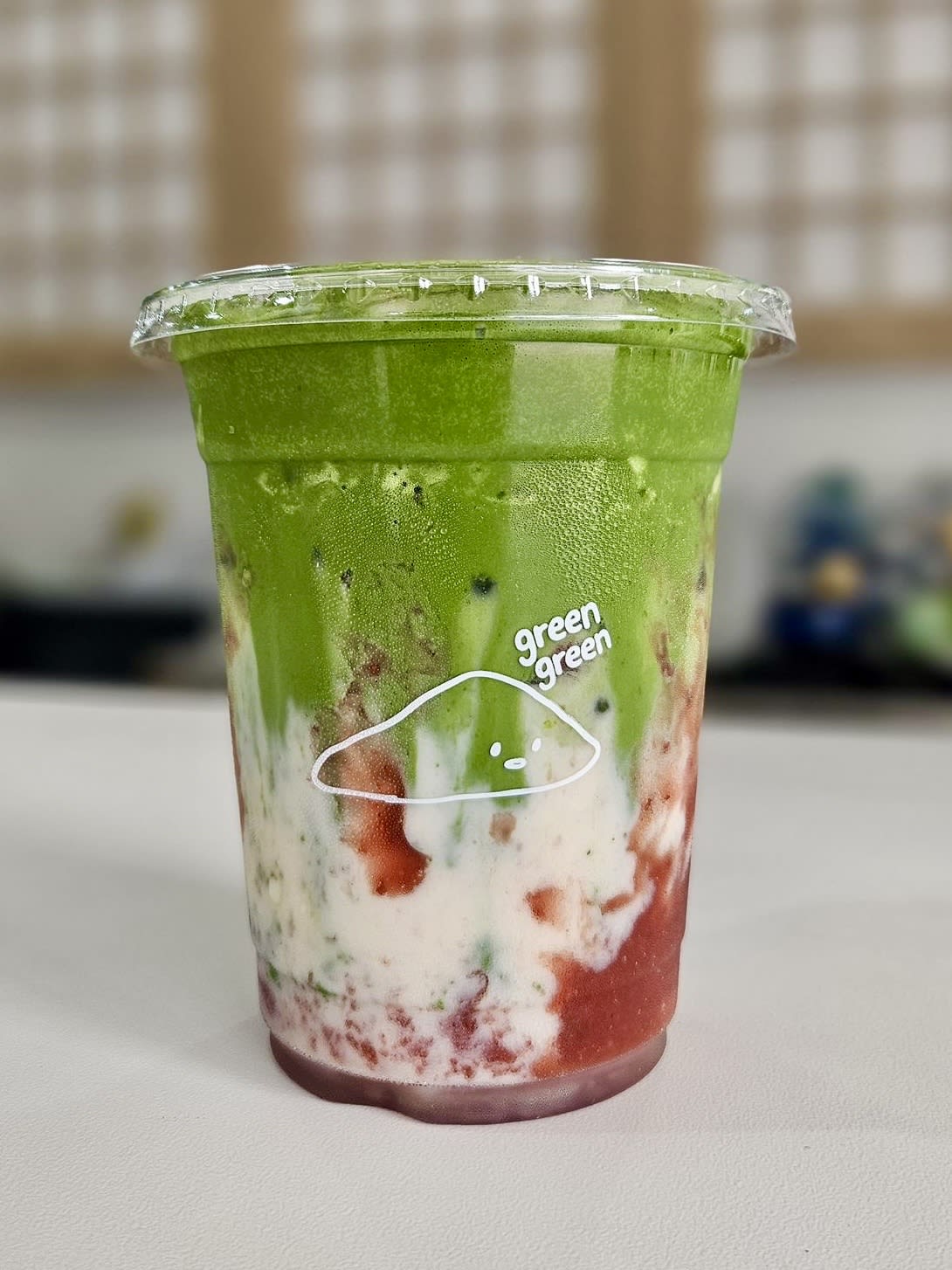
Strawberry Matcha Latte, $7
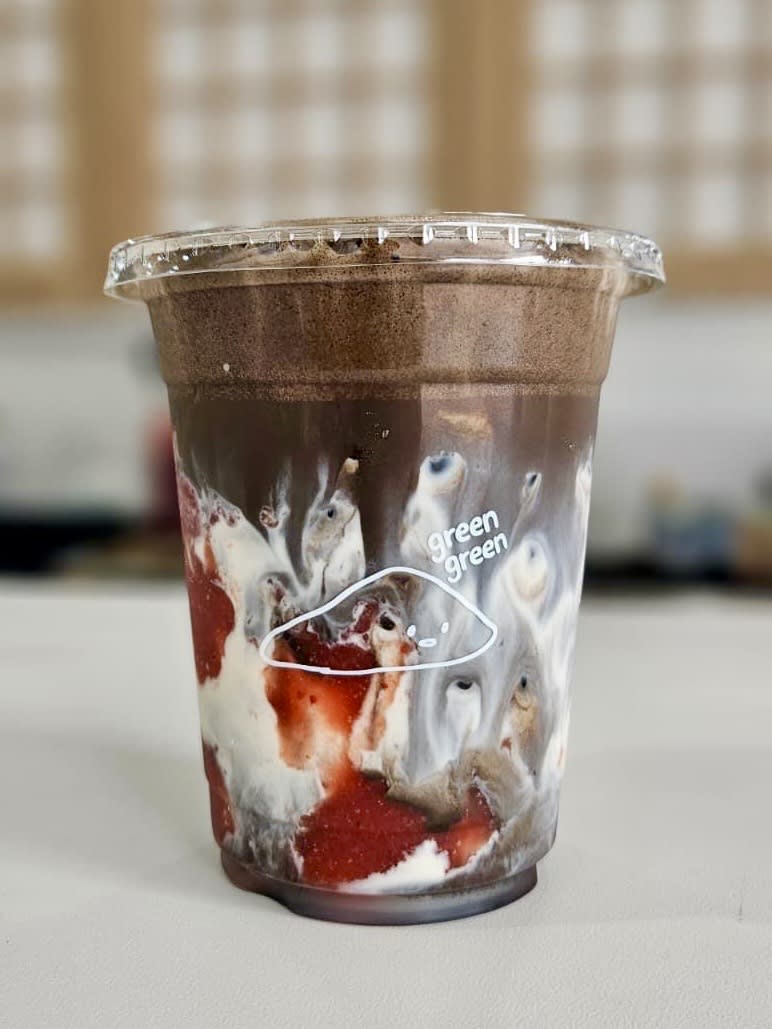
Strawberry Hojicha Latte, $7
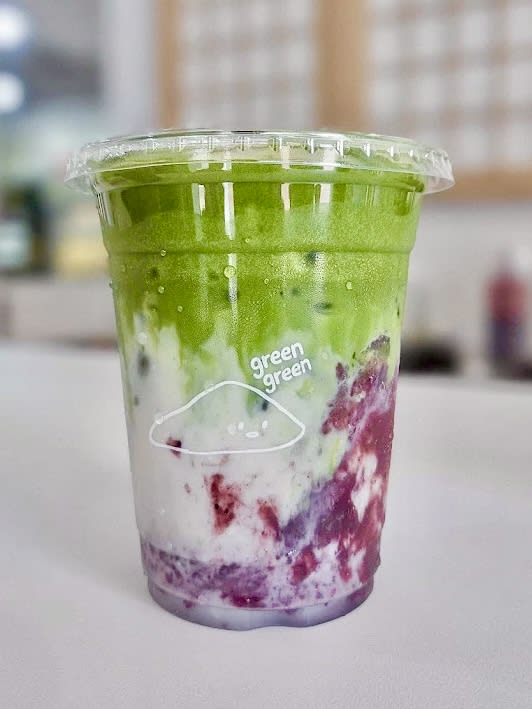
Blueberry Matcha Latte, $7
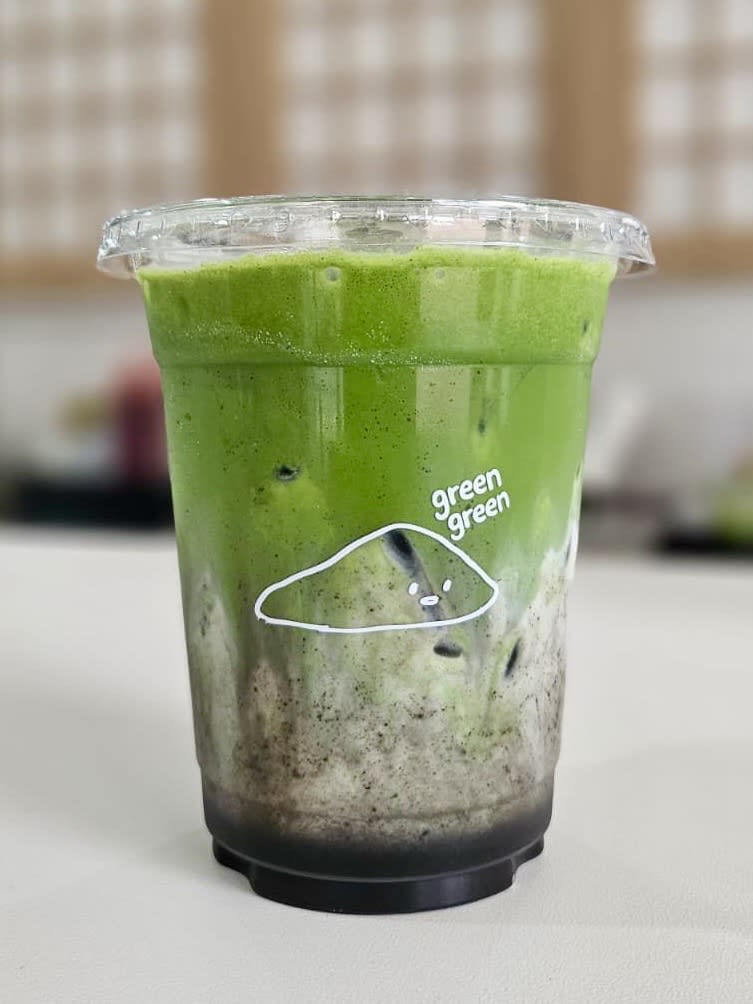
Goma Matcha Latte, $7
The green drink is underscored by a layer of roasted black sesame sauce for a toasty, earthy hit.
Green Green Matcha is located at Telok Ayer Coffee Shop, 121 Telok Ayer St, #01-01, S068590. Open Mon to Fri 9.30am – 3pm. More info via Instagram.
Photos: Green Green Matcha
Top In Asia





